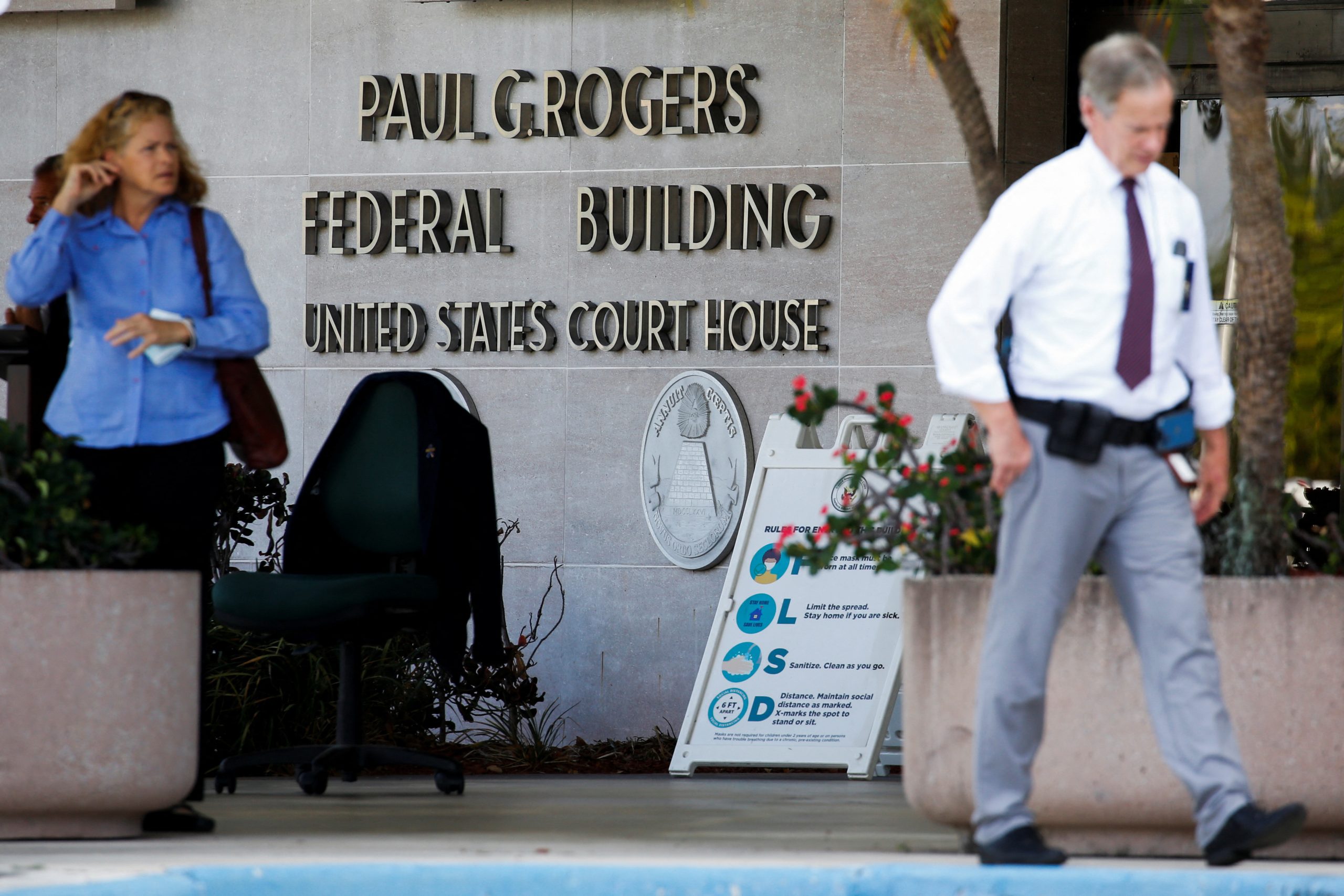
Chris Lange, FISM News
[elfsight_social_share_buttons id=”1″]
The judge who signed off on the warrant for the raid on former President Trump’s Florida residence has rejected the Justice Department’s request to keep the affidavit leading to the search under seal.
Magistrate Judge Bruce Reinhart cited “intense public and historical interest” in the “unprecedented” FBI raid on Trump’s Mar-a-Lago home on Aug. 8 as the reason behind the highly anticipated ruling Monday morning, as first reported by Fox News.
In his 11-page decision, Reinhart said he rejects “the Government’s argument that the present record justifies keeping the entire Affidavit under seal.”
“The Government argues that even requiring it to redact portions of the Affidavit that could not reveal agent identities or investigative sources and methods imposes an undue burden on its resources and sets a precedent that could be disruptive and burdensome in future cases,” Reinhart wrote. “I do not need to reach the question of whether, in some other case, these concerns could justify denying public access; they very well might.”
Reinhart also pointed out in his decision that, “given the intense public and historical interest in an unprecedented search of a former President’s residence,” the Biden administration’s Justice Department had yet to convince him “that these administrative concerns are sufficient to justify sealing.”
He further ordered the Justice Department to provide his office with a redacted version of the raid affidavit by noon on Thursday, after which he will review the proposed omissions and either give his approval or make his own redactions.
“Accordingly, it is hereby ORDERED that by the deadline, the Government shall file under seal a submission addressing possible redactions and providing any additional evidence or legal argument that the Government believes relevant to the pending Motions to Unseal,” the motion states.
Reinhart unsealed and released the warrant application and “criminal cover sheet” in a ruling last week.
The government said in the warrant application that the search of Trump’s private residence was based upon “evidence of a crime” and “contraband, traits of crime, or other items illegally possessed.”
The application further asserted that the search was related to “willful retention of national defense information,” “concealment or removal of government records” and “obstruction of a federal investigation.”
Reinhart signed off on the warrant on Aug. 5. Three days later, on the morning of Aug. 8, 30 FBI agents descended on Mar-a-Lago, emerging hours later with around 20 boxes of documents. The former president’s family members said agents scoured the entire residence, gaining access to Trump’s safe and even allegedly rummaging through the former first lady’s wardrobe.
Government prosecutor Jay Bratt during last Thursday’s hearing argued that unsealing the affidavit would “provide a roadmap” to the ongoing investigation into whether Trump unlawfully retained classified presidential documents at his home. Bratt also cautioned that “volatile” tensions over the raid could cause potential witnesses to fear coming forward with information if the names of witnesses or FBI agents are made public.
“This is not a precedent we want to set,” Bratt said. “The government is very concerned about the safety of witnesses in this case.”
Several media outlets sued to have the affidavit unsealed, citing intense public interest.
Trump, who is not a party to the suit, called for the affidavit to be unsealed without any redactions.
“In the interest of TRANSPARENCY, I call for the immediate release of the completely Unredacted Affidavit pertaining to this horrible and shocking BREAK-IN,” Trump wrote on his Truth Social account last week.
The government justified the FBI’s unprecedented raid of a former president’s home and political opponent of a sitting president based on alleged evidence that Trump violated federal laws by removing documents belonging to the Presidential Archives and classified defense information under the Espionage Act.
The former president and his team are disputing the classification and say they believe all documents and records at Trump’s estate were previously declassified.
This report was also informed by reports from the New York Post and The Washington Examiner.
